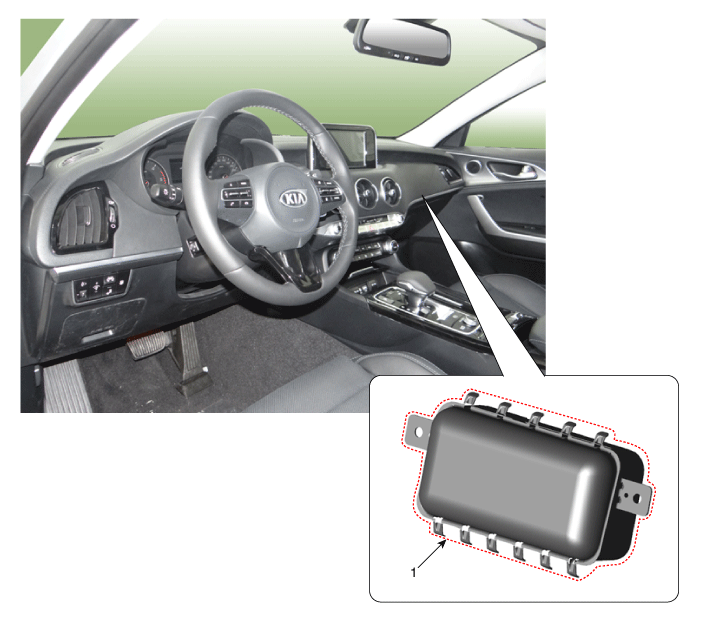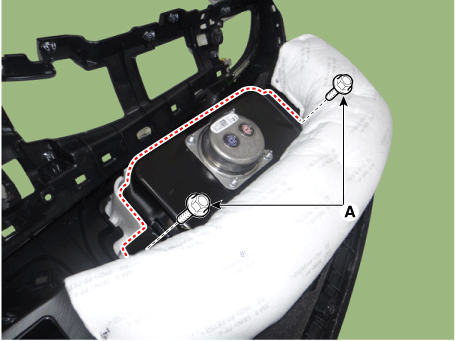Kia Stinger: Airbag Module / Passenger Airbag (PAB) Module
Description and operation
| Description |
Installed inside the crash pad, the passenger airbag (PAB) protects the front passenger in the event of a frontal crash. The SRSCM determines if and when to deploy the PAB.
Never attempt to measure the circuit resistance of the airbag module (squib) even if you are using the specified tester. If the circuit resistance is measured with a tester, accidental airbag deployment will result in serious personal injury. |
Components and components location
| Components |

| 1. Passenger Airbag (PAB) |
Repair procedures
| Removal |
| 1. |
Disconnect the negative battery terminal, and wait for at least three minutes before beginning to work. |
| 2. |
Remove the main crash pad. (Refer to Body (Interior and Exterior) - "Main Crash Pad Assembly")
|
| 3. |
Remove the PAB mounting bolts.
|
| Installation |
| 1. |
Disconnect the battery negative terminal, and wait for at least three minutes before beginning to work. |
| 2. |
Install in the reverse order of removal. |
| 3. |
Reconnect the negative battery terminal. |
| 4. |
After installing the passenger airbag (PAB), confirm proper system operation: Switch "ON" the ignition. The SRS indicator light should turn on for about six seconds and then off. |
 Driver Airbag (DAB) Module and Clock Spring
Driver Airbag (DAB) Module and Clock Spring
Description and operation
Description
Driver Airbag (DAB) is installed in the steering wheel and electrically connected
to SRSCM via the clock spring.
It protects the driver by deplo ...
 Side Airbag (SAB) Module
Side Airbag (SAB) Module
Description and operation
Description
Installed inside the front seat, the side airbags (SAB) protect the driver and
front passenger from danger in the event of a side crash. The SRSCM ...
Other information:
Kia Stinger CK 2018-2025 Owners Manual: RCCW (Rear Cross-Traffic Collision Warning)
When your vehicle moves backwards from a parking position, the sensor detects approaching vehicles to the left or right side direction and gives information to the driver. Operating conditions Select RCCW (Rear Cross-Traffic Collision Warning) in “User Settings” under “Driver Ass ...
Kia Stinger CK 2018-2025 Owners Manual: Cruise control system
The cruise control system allows you to program the vehicle to maintain a constant speed without depressing the accelerator pedal. This system is designed to function above approximately 30 km/h (20 mph ). If the cruise control is left on, (cruise indicator light is illuminated), the cru ...



